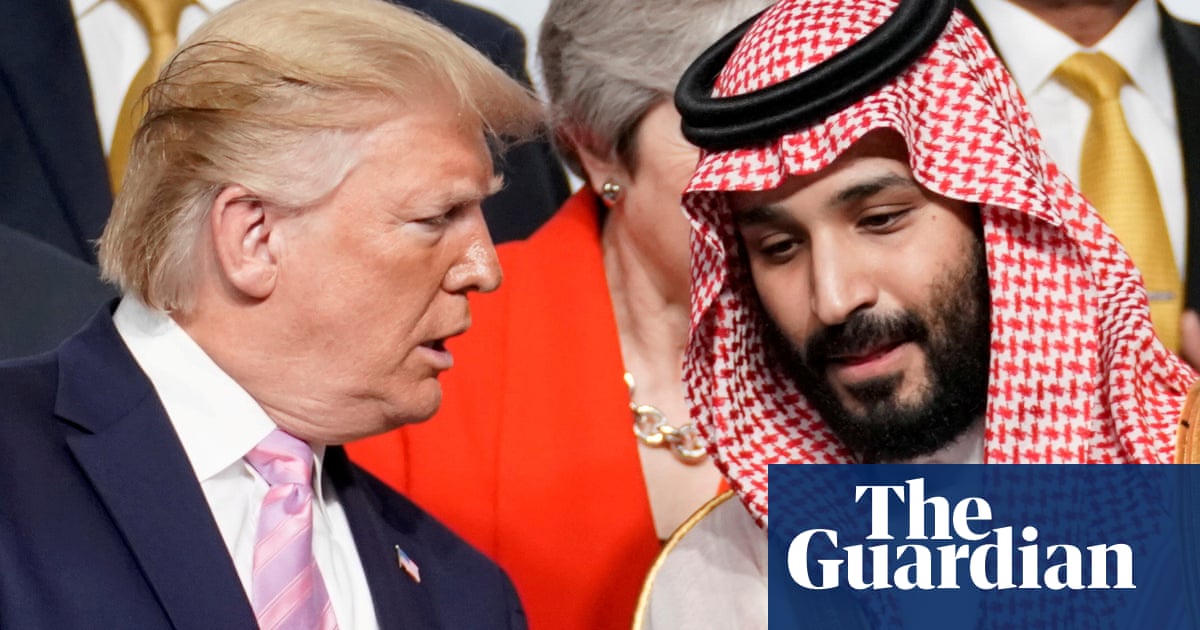Ben Hubbard delivers a fine account of the crown princes rise and how the murder of a journalist did not bring him down

In 2015, the veteran New York Times columnist Tom Friedman wrote a Letter from Saudi Arabia in which he extolled a younger generation of Saudi royals and gushed that Mohammed bin Salman, five years later crown prince of the desert kingdom, brimmed with fresh ideas.
Come 2017, Friedman announced: Only a fool would predict [the] success [of Saudi reform] but only a fool would not root for it.
In between the two columns, Prince Mohammed had embarked on an iron-fisted anti-corruption drive or purge, reportedly engineered the temporary detention and resignation of Saad Hariri, Lebanons prime minister, and openly backed a bloody civil war in Yemen against Iran and its proxies.
Then, on 2 October 2018, Jamal Khashoggi, a Saudi dissident and journalist resident in the US and writing for the Washington Post, was murdered in the Saudi consulate in Istanbul, reportedly at the direction of the prince.
Enter Ben Hubbard, the New York Times Beirut bureau chief, with his first book, MBS: The Rise to Power of Mohammed bin Salman.
Hubbard delivers a highly informed portrait, leavening his narrative with well-deserved skepticism, and leaves the reader wondering what lies ahead for the prince and his kingdom.
This does not purport to be a comprehensive biography. Rather, Hubbard focuses on the princes rise, his accretion and exercise of power, and weaves past reporting into a readily readable package. As to be expected, the prince declined to be interviewed.
Hubbard paints the early years with a broad brush. Among other things, MBS is depicted as being into Margaret Thatcher. As one Saudi royal recalls, the prince always enjoyed talking about the Iron Lady. Hubbard also stresses that the prince was educated inside the kingdom, unlike others who were schooled in the US or Europe. His arc is home-grown.
The book is not a brochure or advertorial. Hubbard spells out the restrictions the Saudis imposed on his travels within the kingdom and reiterates that he was the victim of a purported text message hack attack.
According to the University of Torontos Citizens Lab, Hubbard was targeted by spyware known as Pegasus, made by Israels NSO Group. As reported by the Guardian, it is a distinction Hubbard allegedly shares with Jeff Bezos, the owner of the Washington Post. Other victims included Saudi dissidents and rights activists.
As Hubbard makes clear, the prince is a ruthless salesman. In 2016, he unveiled Saudi Vision 2030, a plan to diversify the economy and its reliance upon oil as an economic driver. When he speaks, people listen.
Richard Branson ventured to Saudi in September 2017. On a trip to California, the Virgin billionaire and the prince discussed space travel. MBS and Silicon Valley too share a mutual interest. The Saudis own a piece of both Uber and Lyft.
Hubbard also sheds light on MBSs role in molding and shifting Saudi foreign policy. As he took over, the kingdom no longer focused on the Palestinians, Israel was no longer its enemy. Regarding the latter, the prince remarked that they were not killing Saudis. Instead, his foes were al-Qaida, Isis, the Muslim Brotherhood and Iran.
According to Hubbard, the princes hostility toward Iran was political, ideological and religious. MBS viewed dialogue between the two Gulf states as nearly impossible. The conflict between Sunni and Shia Islam was centuries old but the IranSaudi cold war was only in its fifth decade. There is plenty of time left.
During the Iran-Iraq war, the Saudis and the US sided with Saddam Hussein. In 1987, Shia pilgrims clashed in Mecca with Saudis during the Hajj. Nearly a quarter of a century later, in 2011, the US foiled an Iranian plot to assassinate the Saudi ambassador at a DC restaurant.
Not surprisingly, MBS viewed the Iran nuclear deal with a gimlet eye, and said of Ayatollah Ali Hosseini Khamenei: I believe the Iranian supreme leader makes Hitler look good.
Hubbard gives kudos to the prince for his liberalization efforts. Women may now drive cars and apply independently for passports. Public entertainment is more commonplace, religious authorities a bit less zealous.
Yet all that comes with constant warning that dissent remains subject to being crushed. Freedoms are fragile, rulers are absolute.

In 2018, the CIA concluded with high confidence that the prince ordered Khashoggis killing. According to Hubbard, whether MBS gave the order to kill is almost secondary. The prince fostered the environment in which Saudi agents and diplomats believed that butchering a nonviolent writer inside a consulate was the appropriate response to some newspaper columns.
Khashoggis murder will stain the princes legacy. MBS may have lost some lustre. But he has not lost his allure.
After a one-year hiatus, Saudis Future Investment Initiative, AKA Davos in the Desert, the princes brainchild, was again a destination for the see-and-be-seen set. Jared Kushner, Steve Mnuchin, Jair Bolsonaro, David Cameron: all were there. The band was back and so were the bankers.
As for Donald Trump, little has changed since the president placed his hands atop the orb in Riyadh on his first foreign trip. He has remained steadfast in his praise for the prince. Last June, the president said of the CIA assessment: I cant comment on the intelligence community. I guess Im allowed to declassify but the truth is I dont want to talk about intelligence. Of course, human rights and a free press were never a Trump priority.
Petro-dollars, sovereign wealth funds and IPOs are forever with us. What makes MBS tick, how he arrived and where he may be headed are subjects of continued interest. On Friday, Hubbard and David Kirkpatrick reported that for unexplained reasons, the crown prince had detained one of the most senior members of the royal family, a former crown prince and a royal cousin.
Hubbards book is anything but a hagiography. It is definitely worth the read.


Recent Comments